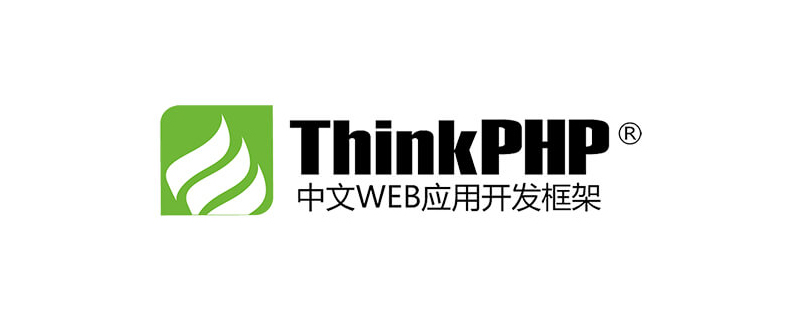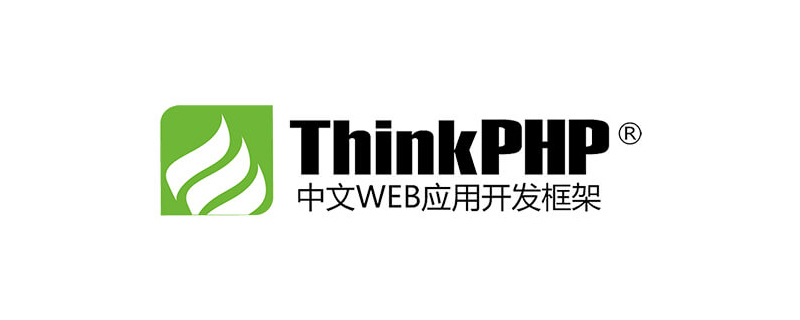 Web Front-end
Web Front-end JS Tutorial
JS Tutorial Solution to the problem that Thinkphp template does not parse and output directly as it is_javascript skills
Solution to the problem that Thinkphp template does not parse and output directly as it is_javascript skillsThe example in this article describes the solution to the problem that the Thinkphp template is not parsed and directly outputs it as it is. Share it with everyone for your reference. The details are as follows:
1. Question:
I was learning thinkphp templates recently, but I found that the template page came out as it was. After some hard searching, I finally found the solution.
2. Solution:
Many people have encountered the same problem. The __ROOT__, __PUBLIC__, and __APP__ contained in the string assigned to the variable are replaced with real paths when displayed in the template. I discovered this problem while writing the Timi file management system.
After reading the source code from the file and outputting it to the page, I found that as long as it is a TP path character, it has been replaced with a real path.
For example:
After the page is output, it is displayed as the real path /public/.
During this period, I went through many attempts, such as base64 encryption when assigning, decoding when outputting the template, and found that it didn't work. Finally, I couldn't help but look at the source code of Tp, and found that in the last step of the display method, the "Tp path constant" was replaced with the real path by calling the tag method. Everything is normal before the render method.

I originally planned to change the source code to implement the following solution for children’s shoes:
Boss, is this a temporary solution or a final solution?
But I think it’s not bad to add a judgment in the assign() method,
If it is $this->assign('','',false), the content will not be replaced and will be output as is.
As a result, after reading this source code, I realized that it was not that easy and the changes were too big.
The last reply from another child pointed out the final solution:
"You can refer to the content here: http://www.jb51.net/article/54217.htm(template replacement)
With the template replacement rule, all __PUBLIC__ strings on the page will be replaced. If we really need to output the __PUBLIC__ string to the template, we can add replacement rules, for example:
'--PUBLIC--' => '__PUBLIC__', // Use new rules to output /Public string
)
After adding the replacement rule in this way, if we want to output the __PUBLIC__ string, we only need to add --PUBLIC-- in the template. The output method of other replacement strings is similar.
After adding the replacement rules in this way, if we want to output the __PUBLIC__ string, we only need to add --PUBLIC-- in the template. The output method of other replacement strings is similar.
So, the plan was released:
Configure in Tp’s configuration file config.php
//Timi file path restoration
'--PUBLIC--' => '__PUBLIC__',
'--APP--' => '__APP__',
'--URL--' => '__URL__',
'--ACTION--' => '__ACTION__',
'--SELF--' => '__SELF__',
'--INFO--' => '__INFO__',
'--EXT--' => '__EXT__'
),
When reading the source code, replace the "path constant character" __ROOT__ with --ROOT--:
$fileContent=htmlspecialchars(preg_replace('/__(.*?)__/is','--$1--',$fileContent));
Then the configuration of TMPL_PARSE_STRING is just replaced when the template is parsed, as shown in the figure below:

Ever since, this problem has been "temporarily" and "perfectly" solved.
I hope this article will be helpful to everyone’s ThinkPHP framework programming.
 thinkphp是不是国产框架Sep 26, 2022 pm 05:11 PM
thinkphp是不是国产框架Sep 26, 2022 pm 05:11 PMthinkphp是国产框架。ThinkPHP是一个快速、兼容而且简单的轻量级国产PHP开发框架,是为了简化企业级应用开发和敏捷WEB应用开发而诞生的。ThinkPHP从诞生以来一直秉承简洁实用的设计原则,在保持出色的性能和至简的代码的同时,也注重易用性。
 一起聊聊thinkphp6使用think-queue实现普通队列和延迟队列Apr 20, 2022 pm 01:07 PM
一起聊聊thinkphp6使用think-queue实现普通队列和延迟队列Apr 20, 2022 pm 01:07 PM本篇文章给大家带来了关于thinkphp的相关知识,其中主要介绍了关于使用think-queue来实现普通队列和延迟队列的相关内容,think-queue是thinkphp官方提供的一个消息队列服务,下面一起来看一下,希望对大家有帮助。
 thinkphp的mvc分别指什么Jun 21, 2022 am 11:11 AM
thinkphp的mvc分别指什么Jun 21, 2022 am 11:11 AMthinkphp基于的mvc分别是指:1、m是model的缩写,表示模型,用于数据处理;2、v是view的缩写,表示视图,由View类和模板文件组成;3、c是controller的缩写,表示控制器,用于逻辑处理。mvc设计模式是一种编程思想,是一种将应用程序的逻辑层和表现层进行分离的方法。
 实例详解thinkphp6使用jwt认证Jun 24, 2022 pm 12:57 PM
实例详解thinkphp6使用jwt认证Jun 24, 2022 pm 12:57 PM本篇文章给大家带来了关于thinkphp的相关知识,其中主要介绍了使用jwt认证的问题,下面一起来看一下,希望对大家有帮助。
 thinkphp扩展插件有哪些Jun 13, 2022 pm 05:45 PM
thinkphp扩展插件有哪些Jun 13, 2022 pm 05:45 PMthinkphp扩展有:1、think-migration,是一种数据库迁移工具;2、think-orm,是一种ORM类库扩展;3、think-oracle,是一种Oracle驱动扩展;4、think-mongo,一种MongoDb扩展;5、think-soar,一种SQL语句优化扩展;6、porter,一种数据库管理工具;7、tp-jwt-auth,一个jwt身份验证扩展包。
 一文教你ThinkPHP使用think-queue实现redis消息队列Jun 28, 2022 pm 03:33 PM
一文教你ThinkPHP使用think-queue实现redis消息队列Jun 28, 2022 pm 03:33 PM本篇文章给大家带来了关于ThinkPHP的相关知识,其中主要整理了使用think-queue实现redis消息队列的相关问题,下面一起来看一下,希望对大家有帮助。
 thinkphp 怎么查询库是否存在Dec 05, 2022 am 09:40 AM
thinkphp 怎么查询库是否存在Dec 05, 2022 am 09:40 AMthinkphp查询库是否存在的方法:1、打开相应的tp文件;2、通过“ $isTable=db()->query('SHOW TABLES LIKE '."'".$data['table_name']."'");if($isTable){...}else{...}”方式验证表是否存在即可。
 thinkphp3.2怎么关闭调试模式Apr 25, 2022 am 10:13 AM
thinkphp3.2怎么关闭调试模式Apr 25, 2022 am 10:13 AM在thinkphp3.2中,可以利用define关闭调试模式,该标签用于变量和常量的定义,将入口文件中定义调试模式设为FALSE即可,语法为“define('APP_DEBUG', false);”;开启调试模式将参数值设置为true即可。


Hot AI Tools

Undresser.AI Undress
AI-powered app for creating realistic nude photos

AI Clothes Remover
Online AI tool for removing clothes from photos.

Undress AI Tool
Undress images for free

Clothoff.io
AI clothes remover

AI Hentai Generator
Generate AI Hentai for free.

Hot Article

Hot Tools

SublimeText3 Chinese version
Chinese version, very easy to use

Dreamweaver Mac version
Visual web development tools

WebStorm Mac version
Useful JavaScript development tools

Notepad++7.3.1
Easy-to-use and free code editor

SecLists
SecLists is the ultimate security tester's companion. It is a collection of various types of lists that are frequently used during security assessments, all in one place. SecLists helps make security testing more efficient and productive by conveniently providing all the lists a security tester might need. List types include usernames, passwords, URLs, fuzzing payloads, sensitive data patterns, web shells, and more. The tester can simply pull this repository onto a new test machine and he will have access to every type of list he needs.





